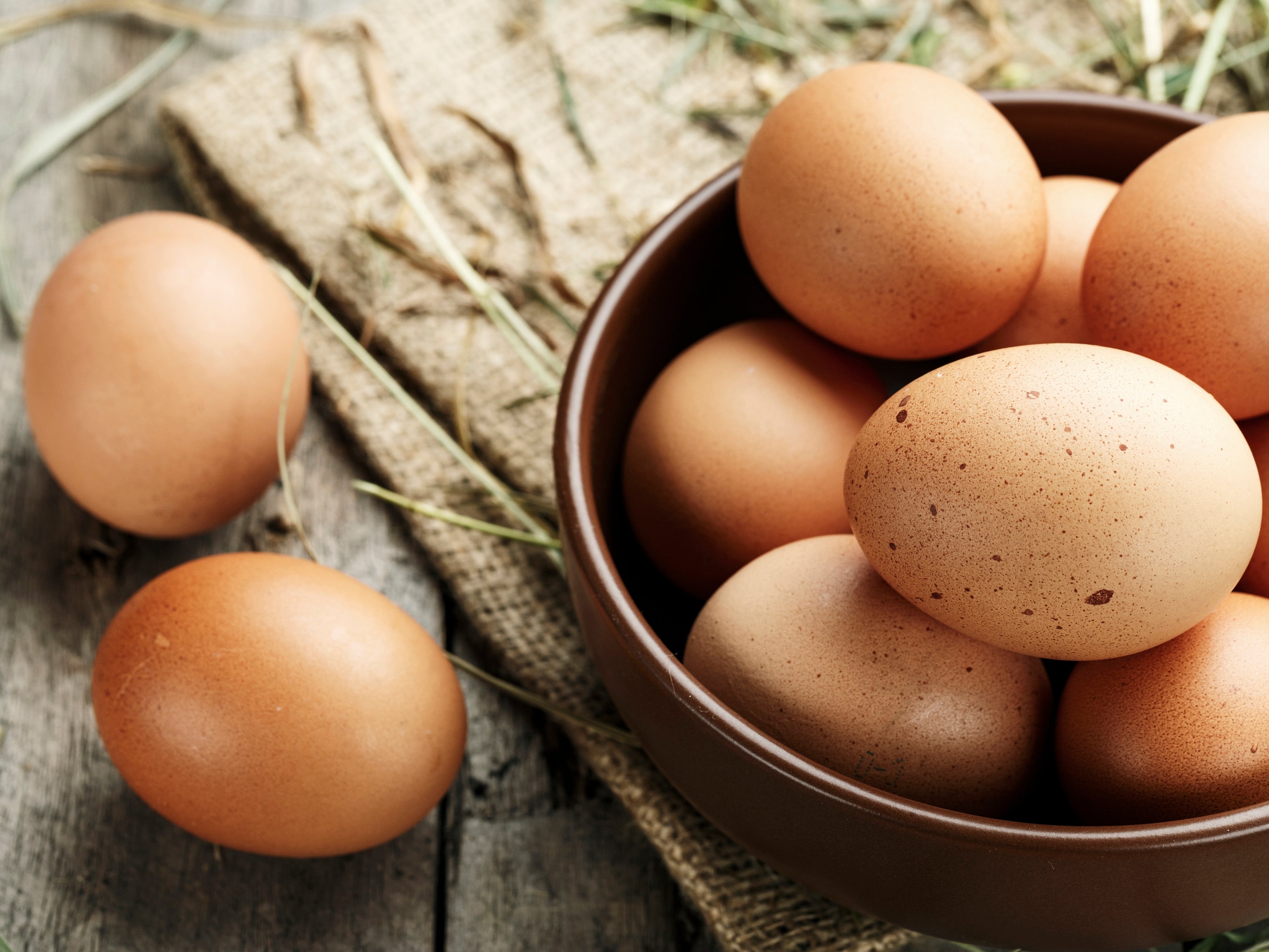How to make sustainable choices now free-range eggs are unavailable
British hens spent the last four months indoors following avian flu outbreaks

Your support helps us to tell the story
From reproductive rights to climate change to Big Tech, The Independent is on the ground when the story is developing. Whether it's investigating the financials of Elon Musk's pro-Trump PAC or producing our latest documentary, 'The A Word', which shines a light on the American women fighting for reproductive rights, we know how important it is to parse out the facts from the messaging.
At such a critical moment in US history, we need reporters on the ground. Your donation allows us to keep sending journalists to speak to both sides of the story.
The Independent is trusted by Americans across the entire political spectrum. And unlike many other quality news outlets, we choose not to lock Americans out of our reporting and analysis with paywalls. We believe quality journalism should be available to everyone, paid for by those who can afford it.
Your support makes all the difference.Free-range eggs are no longer available at British supermarkets after an outbreak of avian flu kept hens indoors this winter.
All birds were ordered to be kept indoors due to outbreaks of the H5N8 strain of avian flu.
This means that free-range eggs will now be labelled as “barn eggs” from Monday 21 March.
Barn eggs is the label given to eggs produced by free-range hens which are permanently kept indoors.
Why are free-range eggs no longer available?
When the H5N8 strain of avian flu began to spread at the end of last year, the government issued guidance for “disease control zones” to be put in place which limited the movement of poultry.
EU laws state that free-range hens can be kept indoors for up to 16 weeks and their eggs still be labelled as free range, but now that the 16-week threshold is coming to an end the free-range label is being taken away.
What is the difference between free-range eggs and barn eggs?
Free-range eggs means that the eggs comes from hens which are able to roam freely around a farm yard including outdoors.
Barn eggs means that hens are kept inside at all times but are able to move freely throughout large sheds.
Caged eggs means that these hens are kept in cages and aren’t able to roam freely.
The RSPCA says that all hens should be kept in free-range or barn environments and that the organisation is “concerned” that hens kept in cages can’t “carry out all their important natural behaviours properly in such an environment”.
Are organic eggs the same as free range?
Organic eggs are similar to free range but come from chickens which have been fed an organically produced diet and have lived on organic land.
What does the lion symbol on an egg mean?
Eggs stamped with a lion means they are part of the British Lion egg safety scheme.
Since it was introduced in 1998, over 90 per cent of all UK eggs are now produced under the scheme which is responsible for the reduction of the presence of salmonella in UK eggs.
All eggs with the mark have been produced under “stringent requirements” of the British Lion Code of Practice which ensures the highest standards of food safety.
The code ensures the entire production line follows food safety controls including all hens to be vaccinated against salmonella.
When will free-range eggs be available again?
Free-range eggs will be available again once current measures have been lifted and avian flu outbreaks decline.
Aimee Mahony, chief poultry adviser of the National Farmers’ Union, said in a statement: “Shoppers may notice different labels on egg packs explaining that the eggs have been laid by hens temporarily housed to protect their health and welfare.
“Once the risk levels have reduced and the housing measures have been lifted by Defra [Department for Environment, Food and Rural Affairs], birds will be able to go outside again.”
What is the most sustainable type of egg to buy when free range isn’t available?
Barns eggs, which free-range eggs will now temporarily be labelled as, are the best alternative to free range.
This is because the laying hens are able to roam freely throughout barns and sheds and they aren’t kept in cages.
Join our commenting forum
Join thought-provoking conversations, follow other Independent readers and see their replies
Comments